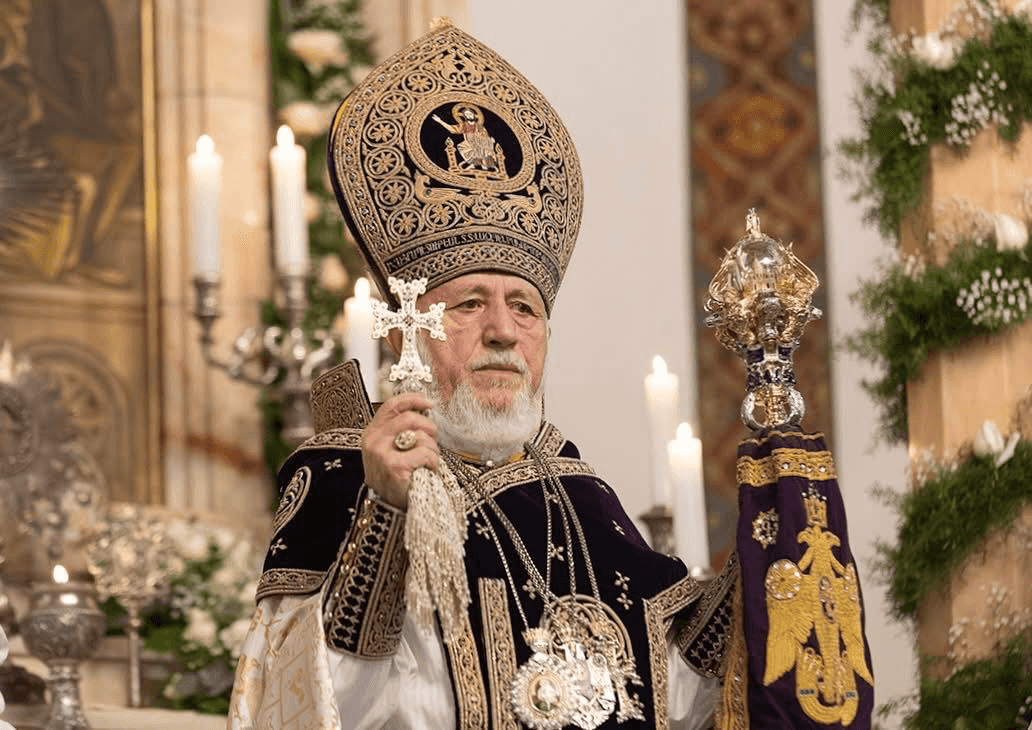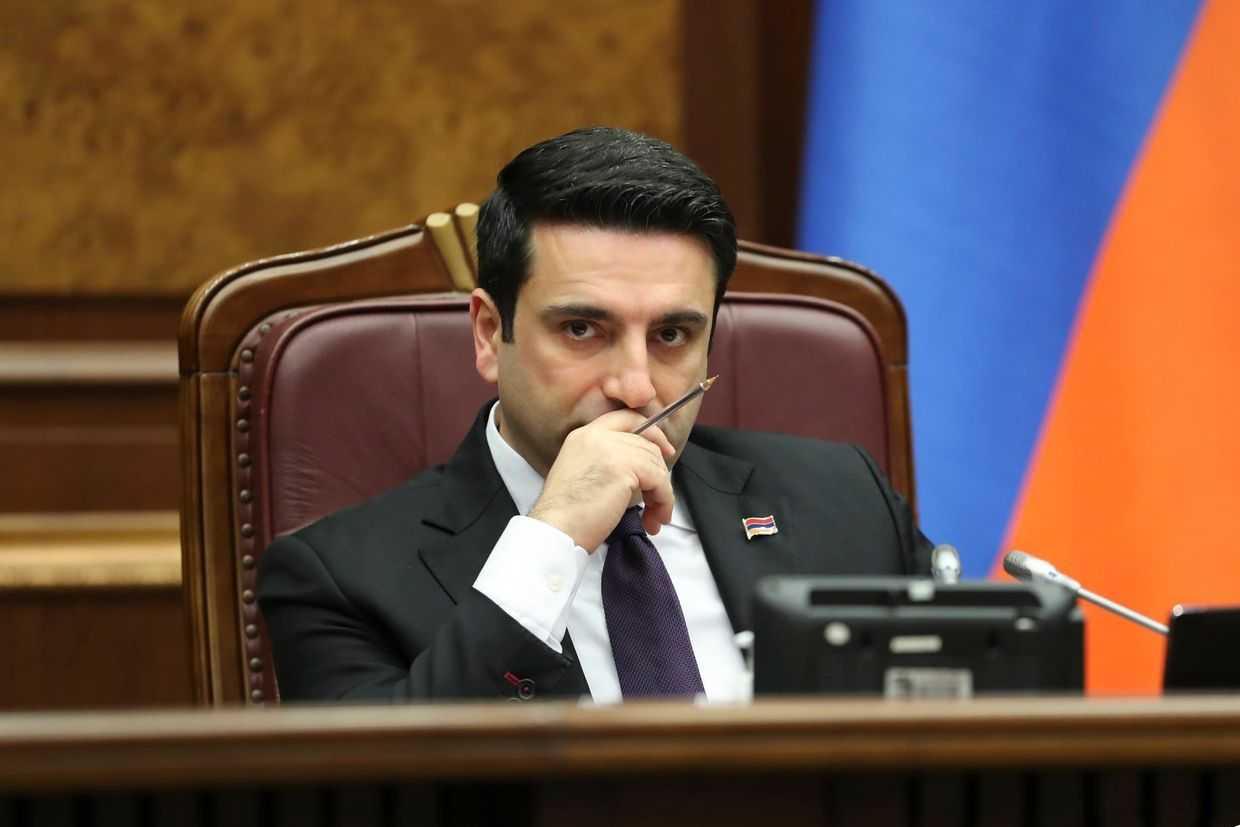
The Armenian Foreign Ministry has been accused by analysts, former diplomats, and others, of distorting reality and justifying the ethnic cleansing of Nagorno-Karabakh, after it issued a statement claiming officials in Nagorno-Karabakh rejected talks with Baku in 2023.
The ministry’s statement was published on 5 April in response to a media inquiry concerning a recent comment from Azerbaijani President Ilham Aliyev.
On 2 April, Aliyev said that ‘the main obstacle’ to negotiations with the Armenian side ‘was the fact that up until January 2024, Armenia was insisting on including the fate of the so-called Nagorno-Karabakh republic in the peace treaty’. He added that the Azerbaijani side was ‘categorically opposed to that’.
The Armenian Foreign Ministry’s statement insisted that Yerevan was ‘working towards ensuring the security and rights of the Armenians of Nagorno-Karabakh’ during the talks, ‘including the establishment of an international mechanism to address these issues.’
‘The efforts to organise meetings between representatives of Azerbaijan and Nagorno-Karabakh in third countries were also aimed at this, which were rejected by Nagorno-Karabakh’, they added.
The ministry also added that following the displacement of Nagorno-Karabakh Armenians in 2023, as well as the publication of the decree on the dissolution of Nagorno-Karabakh, ‘the issue has been removed from the agenda of the regulation of interstate relations’ between Armenia and Azerbaijan.
The said decree was issued at the end of September 2023, shortly after Nagorno-Karabakh surrendered to Azerbaijan. The surrender followed a lightning offensive by Azerbaijan which occurred after a nine-month blockade.

Dismissals of the ministry’s statement
The Armenian Foreign Ministry’s statement caused outrage in Armenia, with many independent experts and former diplomats dismissing its claim, and accusing the ministry of helping whitewash Azerbaijan’s actions in Nagorno-Karabakh.
‘With this statement, Yerevan is actually justifying the ethnic cleansing of Artsakh [Nagorno-Karabakh] by placing the responsibility on Stepanakert’, Tigran Grigoryan, a leading Armenian political analyst who is from Nagorno-Karabakh, wrote on Facebook.
Grigoryan, who heads the Regional Centre for Democracy and Security in Yerevan, posted a link to an article he published in February 2025 in which he appeared to point the finger at Russia for sabotaging talks between Stepanakert and Baku.
In the article, Grigoryan claimed that US officials had established ‘direct contact’ with the Nagorno-Karabakh Armenian leadership in early 2023, when the region was already under Azerbaijani blockade, reaching a preliminary agreement to hold a secret meeting in Sofia between representatives of Nagorno-Karabakh and Azerbaijan.
‘As the meeting approached, Russia launched a disinformation campaign’, he said.
Grigoryan cited an article published on 15 June 2023 by Russian state-run news agency RIA Novosti, claiming that the US was ‘forcing’ Nagorno-Karabakh authorities to meet with Azerbaijan in a third country. RIA Novosti cited a diplomatic source as saying that ‘if the Karabakh leadership refuses such contact, it is threatened with an Azerbaijani counter-terrorist operation in the region’.
The claim was later echoed by Russian Foreign Ministry spokesperson Maria Zakharova, who accused the US of using blackmail and coercion.
‘Following this Russian intervention, the planned Sofia meeting was derailed’, Grigoryan wrote.
A second attempt to hold a meeting, this time in Bratislava, Slovakia, was agreed, for which, according to Grigoryan, ‘the Nagorno-Karabakh delegation had even purchased airline tickets’.
‘However, Azerbaijan exploited tensions between Washington and Moscow to sabotage this meeting as well. Most likely, Baku informed Moscow of the planned Bratislava meeting and, in return, secured Russian support for an alternative meeting in Yevlakh [in Azerbaijan], under Azerbaijani terms. This Russian-Azerbaijani understanding ultimately led to the failure of the Bratislava meeting as well’, Grigoryan wrote.
Journalist and analyst Tatul Hakobyan told RFE/RL that the US had proposed not to inform the Russian side about the first meeting, which Hakobyan considered ‘illogical’, considering that at that time Russia was the guarantor of the region’s security following the Second Nagorno-Karabakh War in 2020, bringing around 2,000 Russian peacekeepers to the war-torn region.
RFE/RL quoted Hakobyan as saying that the Nagorno-Karabakh Armenian diplomats informed Russia about that meeting, and the latter advised them not to participate.
‘It was the [Nagorno-Karabakh] side that mainly rejected the Sofia meeting’, Hakobyan said, adding that ‘is also a fact’ that the meeting in Bratislava, scheduled for 1 August 2023, ‘was directly rejected by Azerbaijan’.
‘Therefore, I consider it not only unfair to place all the responsibility on the [Nagorno-Karabakh] side, but also that this information does not correspond to reality’, Hakobyan said.
On 7 April, the Nagorno-Karabakh InfoCentre, an information platform of the former authorities in Nagorno-Karabakh, responded to the Armenian Foreign Ministry, saying that they considered their statement to have ‘no legal basis’, and calling it ‘an unsuccessful attempt to divert public attention from real problems’.
The Pan-Armenian Diplomatic Council — among whose members is Ara Ayvazyan, a former Foreign Minister serving under Pashinyan’s administration — stated that with this statement, the Armenian Foreign Ministry was helping Azerbaijan to ‘evade responsibility’ for ‘genocidal acts in [Nagorno-Karabakh] through blockade and ethnic cleansing’.











